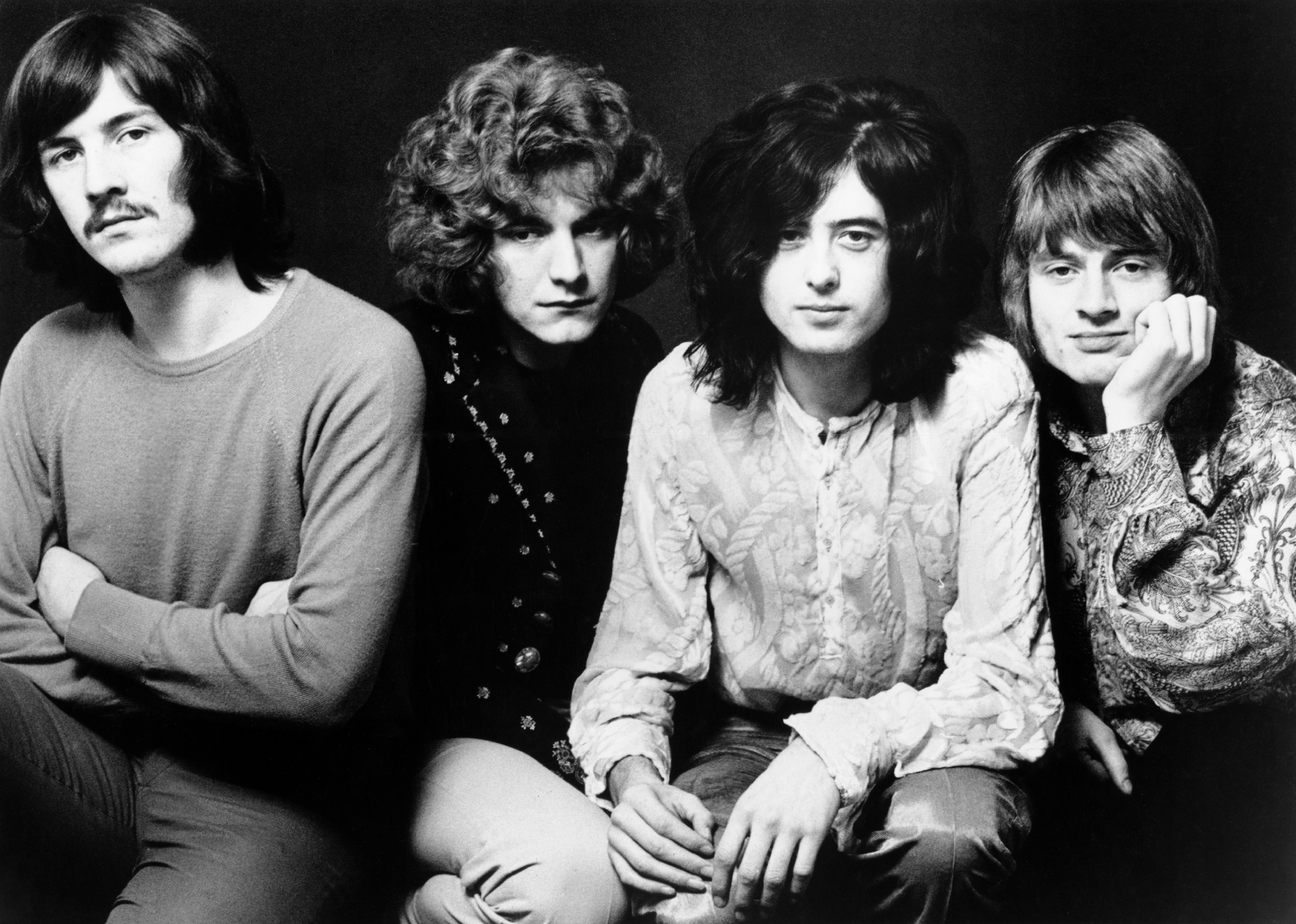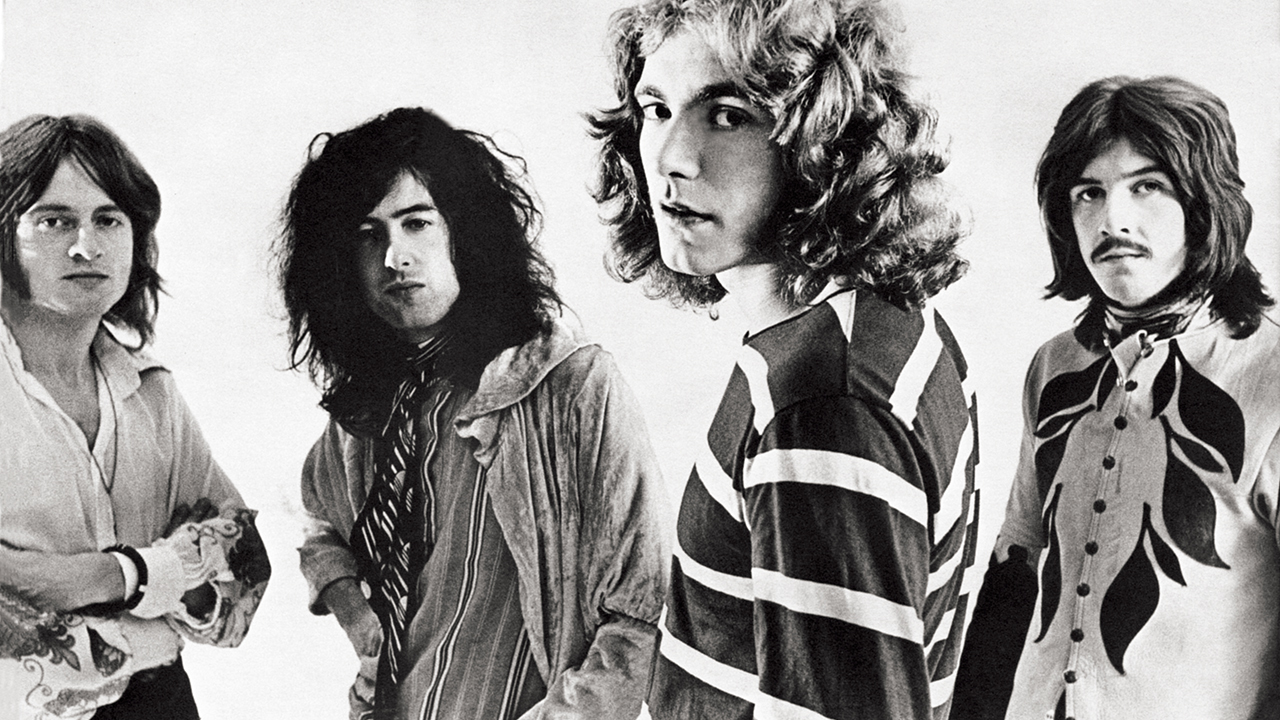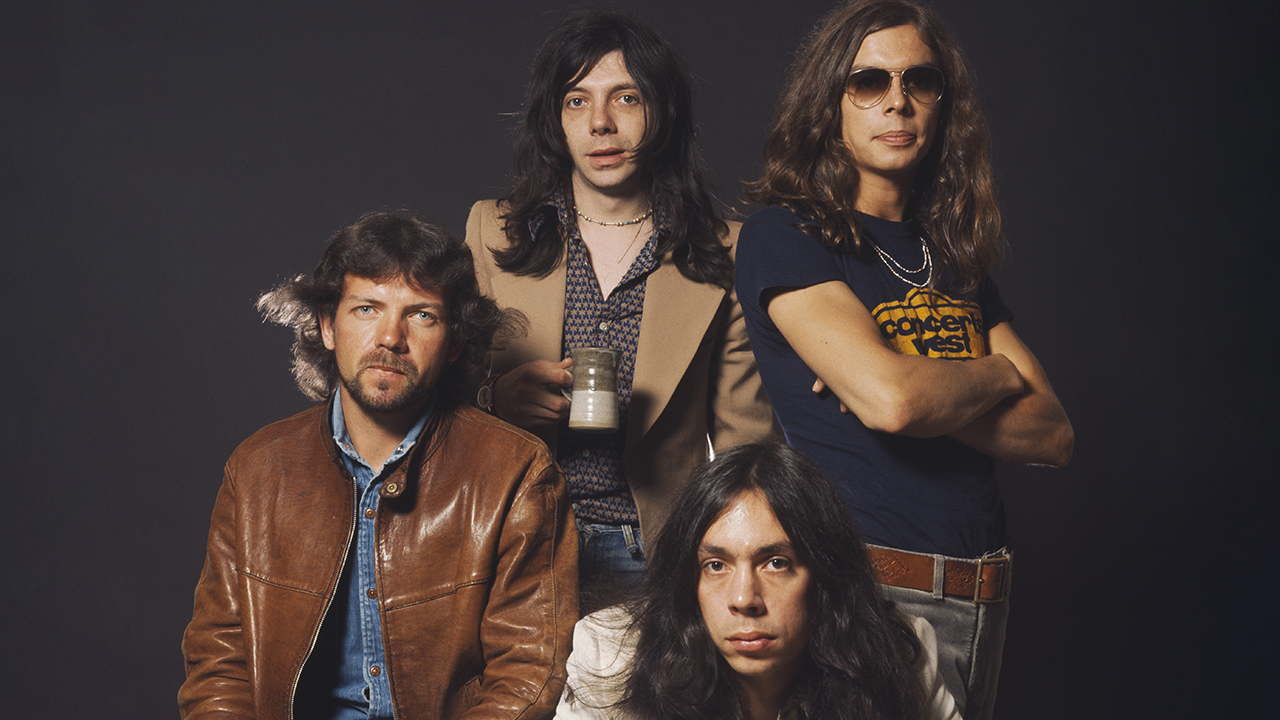You can trust Louder
Just how much more juice is there to be squeezed out of the Led Zeppelin lemon? It’s a question you may well ask yourself by the time you’ve reached CD3 of The Complete BBC Sessions, nine tracks that positively scream: “There’s still gold at the bottom of them thar barrels!”
And if you’ve been suckered into buying the full, individually numbered, Super DeLuxe, 180-gram vinyl version of this set you may additionally wonder if they saw you coming.
But hey, the Zeppelin train must keep a-rollin’, if only to stave off the creative redundancy and septuagenarian ennui of James Patrick Page, who has inevitably taken charge of both the remastering and the gathering of the new/lost/alternative tracks that make up CD3. The fact that the latter disk brings the total number of BBC versions of Led Zeppelin’s Communication Breakdown to five tells you a bit about what is being scraped from said barrel bottoms. There are also not one but two more versions of What Is And What Should Never Be, and a third version of their malevolent epic Dazed And Confused (although to its credit it is seven minutes shorter than the 18-and-a-half-minute drone-a-thon on CD2). And there are yet more versions of Chicago blues staples You Shook Me and I Can’t Quit You, Baby. Ambassador, with these scrapings you are really not spoiling us.
That’s the grinching over with. Here’s the glass-half-full verdict. If you’re new to Led Zep’s sessions for Auntie – ie you’ve never heard the original album released almost 20 years ago – you’ve got a huge treat in store. What that two-CD set did was prove what the early Zep bootlegs had always intimated, which is just how tight and intense the band were on stage, how effortlessly they translated the power and discipline of their studio sound to a live setting.
True, the 1969 sessions they recorded for John Peel’s Top Gear show and Chris Grant’s absurdly named Tasty Pop Sundae weren’t entirely live, as is evident from the fact that you can clearly hear Page’s lead lines overdubbed on top of his own rhythm riffs. It’s also true that in 1969 Zeppelin were blessed with the best of the Beeb’s engineers, who could replicate the sheer density of the sound that Page (with the aid of Glyn Johns et al) had built on LZ and LZII. But the power – ultimately the power of the band itself – remains undeniable and overwhelming.
- The Led Zeppelin songs that Led Zeppelin didn't write
- Led Zeppelin: The TeamRock Archives
- Meet the three-year-old Led Zeppelin expert
- Inside Black Sabbath and Led Zeppelin’s lost jam session
The difference between Led Zeppelin and the many other ‘heavy blues’ of the late 60s was startling. Even the superficially dutiful covers of Shook and Quit here are never ploddingly predictable, always alive with tension and suspense. The Delta classics Travelling Riverside Blues and The Girl I Love She Got Long Black Wavy Hair – highlights of the BBC Sessions in ’97 and still highlights now – take ancient songs by Robert Johnson and Sleepy John Estes and turn them into irresistibly propulsive funk.
Bassist John Paul Jones – more intent on becoming the white James Jamerson than on keeping up with the John McVies of this world – knew fuck all about blues before he joined Zeppelin, and cared still less. He also instinctively recognised in drummer John Bonham a kindred spirit, a genius timekeeper who’d sooner have played with James Brown than with John Mayall. (On the proto-punk Communication Breakdown the band are already incorporating a break section comprising the riff from the Isley Brothers’ It’s Your Thing.)
Sign up below to get the latest from Classic Rock, plus exclusive special offers, direct to your inbox!
Suffice to say that the 1969 sessions on CD1, climaxing in four searing numbers recorded at London’s Playhouse Theatre, are as good as anything on the first two Zeppelin albums. As it does on the game-changing Led Zeppelin, How Many More Times (like What Is And What Should Never Be) starts out sounding almost Doors-ish – think Bonzo’s jazzy cymbals and Page’s limpid slide licks – before its bludgeoning groove kicks in and obliterates any signs of John Densmore or Robby Krieger.
If Whole Lotta Love never quite swung live as it does on LZII, it’s worth seeing it through just to hear Robert Plant yelping ‘I got the West Bromwich blues!’ at the end. (He also manages to insert Robert Johnson’s evergreen ‘squeeze my lemon’ line into not one, not two, but three numbers, none of them The Lemon Song. Clearly Plant had mean lemons on his mind in 1969.) Plant’s singing throughout The Complete BBC Sessions is blood-curdlingly great. On CD1 there are several instances of cool interplay and counterpoint between him and Page – not a feature of Zep’s sets by the mid-70s – when the singer was wearying of the guitarist’s endless solos.

CD2 consists entirely of a show recorded before a small audience at London’s Paris Theatre on April Fool’s Day 1971. Introduced by the lugubrious tones of John Peel (who might already have been wondering if Zeppelin were really the kind of act he should be championing on Radio 1), the set captures the band at their most imperious, swinging from the pounding funk-metal of Immigrant Song to the acoustic canyon interlude of Going To California/That’s The Way via the wrenching blues-ballad histrionics of Since I’ve Been Loving You.
Plant’s winsome homage to Joni Mitchell (or at least the idea of Joni Mitchell), Going To California was one of three songs from a fourth Zeppelin album that was at the time still seven months away from release. The other two were the fiendishly intricate, demonically sexy Black Dog and the prog pastorale Stairway To Heaven – the latter not at that point a composition likely to give Plant sleepless nights about the exact date he’d seen Spirit play at Mothers club in Birmingham.
The 18-plus minutes of CD2’s Dazed has Page, violin bow in hand, sawing away like a crazed electric Paganini and sounding alternately like a bad trip at Bill Graham’s Fillmore and a creepy out-take from Jack Nitzsche’s Performance soundtrack. The Paris Theatre set sags only when it defaults to a 14-minute Whole Lotta Love medley of blues and rock’n’roll classics (John Lee Hooker’s Boogie Chillun/Bukka White’s Fixin’ To Die and Elvis’s That’s Alright, Mama/A Mess Of Blues) that only underscores the complacent laziness of 70s supergroups taking busman’s holidays.
Unless you’re a real Led Zep nerd – or Jimmy Page – you won’t urgently require the third disc of The Complete BBC Sessions, although you may as well have it. The instrumental White Summer is a respite from the third Dazed, with Page channeling Bert Jansch on his Danelectro and Bonzo offering percussive accompaniment while Plant and Jones presumably sip tea in the Green Room. The ‘previously lost’ [sic] versions of Shook and Quit – recorded in 1969 for Plant mentor Alexis Korner’s Rhythm And Blues Show – sound little better than taped-off-the-radio bootlegs, despite the fairy dust that Page was able to scatter over them in the mastering suite.
As for Sunshine Woman, co-credited to both Robert Johnson and Willie Dixon (it seems they’re not taking any chances these days), it’s merely a funky blues in the mode of Long Black Wavy Hair, distinguished only by a rare outing on piano for our man Jones. In summary: do Zep’s ‘complete’ Beeb sessions add much to the 1997 album? They do not. But there’s a mess of masterful blues and rock heaviness here that superbly augments the remastered Zeppelin catalogue.
This piece originally appeared as part of TeamRock+. Sign up now for more exclusive and ad-free interviews, reviews, features, videos and opinions.
The Top 10 best Jimmy Page solos: the Led Zeppelin years
I’m A Led Zeppelin Fan – But I Still Wanted Them To Be Found Guilty

